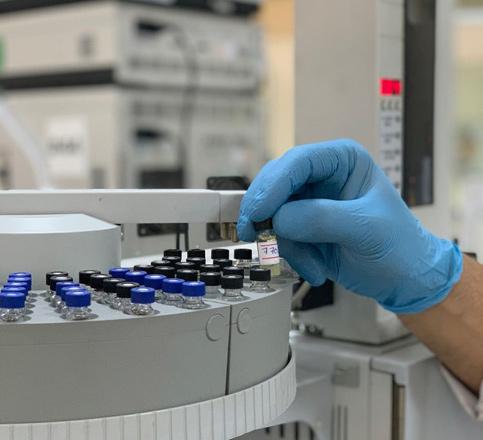- Local News
- Thu-2020-07-09 | 03:09 pm

The new partnership will allow Jordanian scientists and researchers to participate in IIASA’s programmes and initiatives focused on science-to-policy-oriented research requiring multi-disciplinary and multi-national collaboration.
The RSS, an independent, non-government, not-for-profit institution, is Jordan’s scientific hub for international engagement and national scientific advice and the Kingdom’s leading support mechanism for technical guidance, policy, services and scientific research for development.
The IIASA partnership will enhance the RSS’ strategic mission to support the role of science and technology to solve complex national, regional and global challenges, Petra said.
Led by the president of the RSS, HRH Princess Sumaya, IIASA and the RSS have explored possible research collaborations since the signing of a memorandum of understanding at the World Science Forum 2017, which was hosted in Jordan by the RSS.
With a specific focus on data and systems analysis, the two organisations now aim to identify and design specific research projects in areas of mutual interest, including Fourth Industrial Revolution technologies, Artificial Intelligence applied to water scarcity challenges, quantum computing for natural resource management and Bio and Nanotechnology for water capture systems and renewable energy solutions.
The partnership will enhance the work of the RSS’s Knowledge for Development (K4D) Pillar to conduct meaningful data research and historic analysis for predicative analytics. The K4D Pillar reflects the RSS’ commitment to supporting evidence-based decision making for the government and the private sector and to ensure the quality and utility of knowledge generation and dissemination, according to Petra.
The partnership will also create opportunities for young Jordanian scientists through specialised systems analysis training programmes and access to IIASA’s Young Scientists Summer Programme.
"So many of today’s global challenges cut across multiple sectors of society, from the economy and the environment, to health and agriculture,” Petra reported Princess Sumaya as saying.
"Systems science is one of the few transdisciplinary approaches that has the breadth and capacity to devise integrated solutions. As new technologies become more prevalent, we must ensure they are used to democratise science, enhance global justice and facilitate trans-global cooperation. We look forward to a long and productive partnership between Jordanian and IIASA scientists as we collaborate to advance comprehensive systems analysis,” Princess Sumaya said.
Princess Sumaya has been influential in positioning and enabling Jordan as a leading advocate for science and a catalyst for change in the region and on the international stage. She is a dedicated science enabler in the Arab World and UNESCO Special Envoy for Science for Peace, Petra said.
Both the RSS and IIASA share a mission to "build bridges” through scientific collaboration and focused research on critical challenges. The new partnership will identify and explore areas of research for the benefit of Jordan, the Middle East and the IIASA’s membership of 22 nations.
"IIASA provides the convening power to build multinational teams of researchers and apply their expertise to complex challenges that cross international boundaries,” Petra quoted Ambassador Leena Al Hadid, Jordan’s permanent representative to the United Nations and other international organisations in Vienna, as saying.
"We are delighted to welcome Jordan as a prospective member of IIASA. Our envisaged long-term, mutually beneficial relationship will enable Jordan’s scientific community to access the skills and networks that IIASA holds, while Jordan will add a valuable geopolitical perspective to the institute’s mission,” said IIASA Director General Albert van Jaarsveld.
"We look forward to working with the RSS and to promoting cooperation between the Jordanian and other regional scientific and policy communities over the next two years,” he said.
Located in Laxenburg, Austria, about 15 kilometres from Vienna, the IIASA is an international scientific institute that conducts research into the critical issues of global environmental, economic, technological and social change in the twenty-first century, Petra said.








